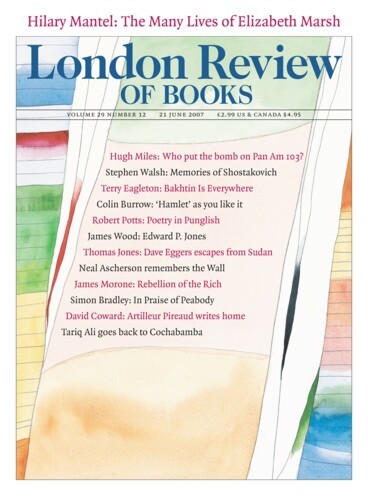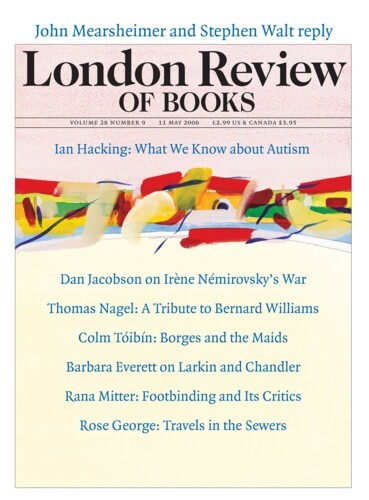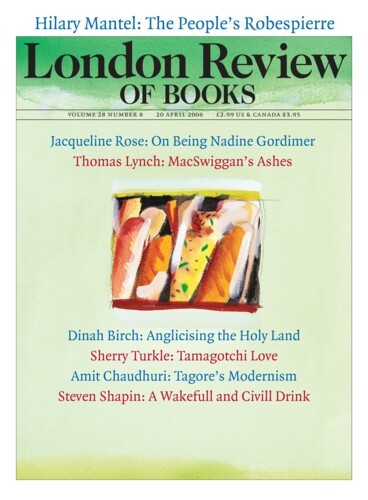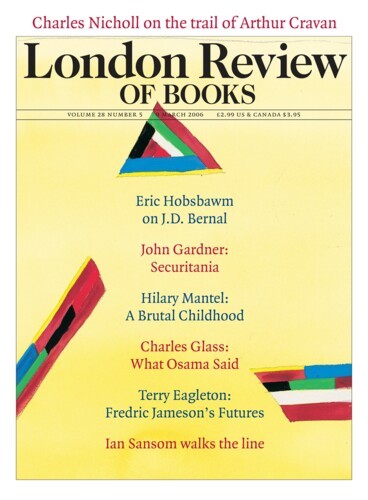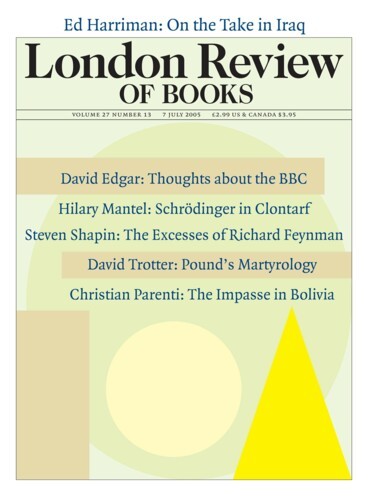The Real Price of Everything: The Many Lives of Elizabeth Marsh
Hilary Mantel, 21 June 2007
Elizabeth Marsh was one of those shaken by the times she lived through, her personal ‘ordeal’ intimately connected with global forces beyond the grasp of any individual then living. Conceived in Port Royal, born in Portsmouth, she ‘travelled further and more dangerously by sea and in four continents than any female contemporary for whom records survive’. Her father was Milbourne Marsh, a carpenter from an English family whose fortunes were connected to the sea.
